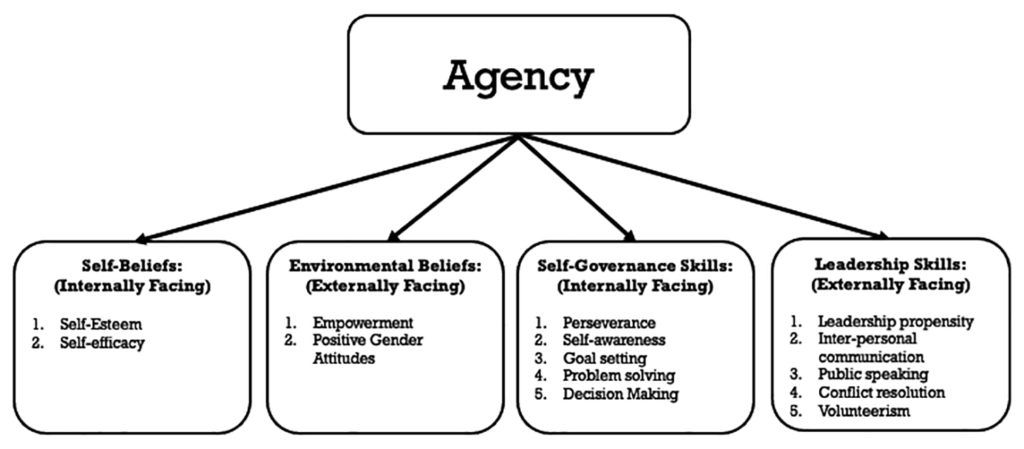Apparently we missed International SEL Day in March (there’s a day for everything!!) but that’s not going to stop us from focusing our April Puggle on the latest and greatest in research and tools on life skills and social and emotional learning.
First up, a group of funders (Porticus, LEGO Foundation, and the Jacobs Foundation) summarize the current evidence on taking a holistic approach to education, which they define as “an approach that goes beyond just academic knowledge and skills of literacy and numeracy, and aims to educate the whole child, physically, socially, emotionally, and academically, with the active engagement and support of the community.” The paper argues that holistic skills are critical alongside academic skills for student success in school and life.
It also points to where evidence gaps remain, including:
- “A better understanding of the impact of holistic approaches during adolescence”;
- “An increase in evidence from low-income countries”; and
- “A better understanding of the relationship between a holistic approach and long-term life outcomes.”
One thing this report doesn’t touch on much is gender differences in academic outcomes. So we’re glad we finally stumbled upon a report the World Bank published back in October looking at Gender Differences in Socio-Emotional Skills and Economic Outcomes. A team of researchers looked at evidence from 17 African Countries to examine gendered differences in socio-emotional skills and their relationship with education and earnings. They posit a conceptual framework wherein socio-emotional skills contribute to labor market participation and earnings both directly (through workplace relevant skills) and indirectly (by supporting strong education outcomes which in turn support economic outcomes).

Here are four findings from the report that we found intriguing:
- Women have significantly lower levels of socioemotional skills (after controlling for things like age, marital status, and educational level).
- Gender differences in socioemotional skills are partially driven by gender gaps in education — closing the education gender gap would close about 17% of the socioemotional skill gender gap.
- Education systems do not do as good a job teaching women interpersonal skills as they do men; women gain less from schooling than men in terms of the ability to interact and communicate effectively with others. Taken with the second point above, this means that gender gaps in education both exacerbate the socioemotional skills gap and are likely also a consequence of them.
- For women, both intrapersonal (the ability to understand and manage one’s own emotions, thoughts, and behaviors) and interpersonal skills are significantly correlated with higher earnings. For men, just intrapersonal skills are correlated with higher earnings. Women alone garner strong gains from interpersonal skills, but these are the skills they gain the least through education compared to men. These findings suggest schools could invest in developing training for skills like interpersonal skills and perseverance that are equity enhancing for women. (And that societies may need to shift to more equitable treatment of women and men in the marketplace.)
For another interesting look at the gendered implications of social and emotional learning, check out this recently published piece from Aubryn Sidle and Brenda Oulo. The authors worked with practitioners from Amplify Girls who work in girls’ education across East Africa to identify what outcome matters most for girls. They landed on “agency” as the key outcome of interest for their programs and worked jointly to develop a regional measure of the construct, comprising four factors: self-beliefs, environmental beliefs, self-governance skills, and leadership skills. The authors highlight how “a girl’s agency is context-dependent and should be defined by the specific skills and beliefs that help her effectively navigate and mitigate these forces in her particular setting.” They developed a contextually relevant approach for measuring agency and highlight how it might be adapted for use elsewhere. They argue that “Rather than looking for uniform metrics for soft skills, our approach suggests that quality education experts should rely on regionally specific measures that are conceptually comparable, and should test how widely these measures may be valid.”
Practitioner-driven conceptual framework of agency

For even more resources on contextually relevant tools for assessing life skills, check out a few resources that are hot off the press from two consortiums that Echidna Giving participates in and funds. First, out of India is the newly launched Life Skills Collaborative Assessment Toolkit. “Each tool is designed to be user-friendly and accessible, with the goal of enabling individuals and organizations to identify their strengths and areas for growth when it comes to essential life skills.” Second, ALiVE — Assessing Life Skills and Values in East Africa — also launched five learning briefs from their reflections on the process of creating a context-driven tool to assess life skills and values.
In other news…
- A new UNICEF report on Bridging the Gender Digital Divide finds that about 90 per cent of adolescent girls and young women do not use the internet in low-income countries, while their male peers are twice as likely to be online.
- An analysis by the Global Education Monitoring Report suggests that there is $100 Billion USD finance gap for countries to achieve SDG4 national education targets
